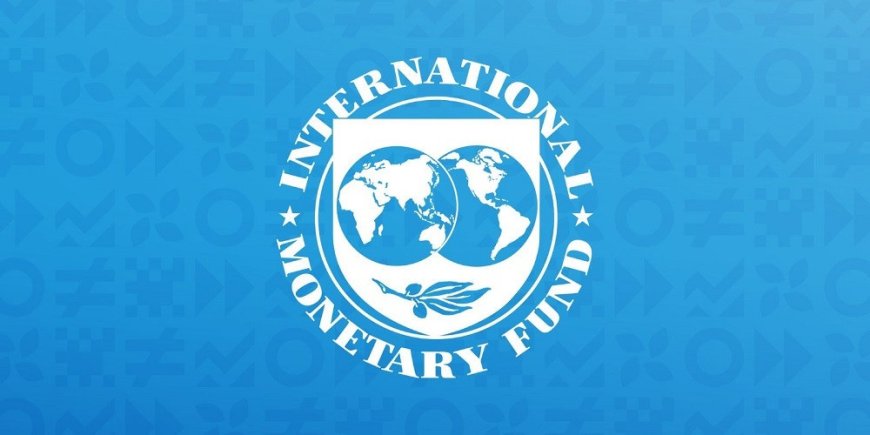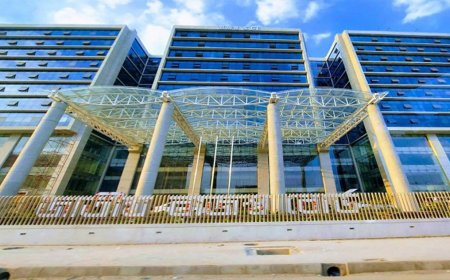The IMF forecasts Bangladesh's GDP growth to reach 3.8% in the fiscal year 2025
The IMF anticipates that GDP growth will recover to 6.7% in FY2026, driven by an expected easing of policies.

The International Monetary Fund (IMF) on Wednesday forecasted Bangladesh's real Gross Domestic Product (GDP) growth at 3.8% for the fiscal year 2025, attributing the slowdown to output losses caused by public unrest, floods, and tightened policy measures.
In a press release, the IMF projected a recovery, with GDP growth expected to rebound to 6.7% in FY2026 as policies are anticipated to ease.
Inflation is forecasted to average around 11% year-on-year in FY2025 before decreasing to 5% in FY2026, aided by tighter policies and reduced supply pressures. However, the outlook remains highly uncertain, with risks tilted to the downside.
An IMF staff team led by Chris Papageorgiou visited Dhaka from December 3 to 18, 2024, to review economic and financial policies under the third assessment of the IMF-supported Extended Credit Facility (ECF), Extended Fund Facility (EFF), and Resilience and Sustainability Facility (RSF).
Following the visit, Papageorgiou issued a statement announcing a staff-level agreement with Bangladeshi authorities on the policies required to complete the third review under the ECF, EFF, and RSF arrangements. The IMF’s Executive Board will assess the review based on the implementation of prior actions by the authorities.
The timely establishment of an interim government has helped restore economic stability gradually, but economic activity remains subdued, inflation high, and foreign exchange reserves under pressure due to capital outflows, particularly from the banking sector. Tax revenues have declined, while spending demands have risen, compounding stress within parts of the financial sector.
In response to the challenges, Bangladeshi authorities have requested an additional SDR 567.2 million (approximately $750 million) in IMF financial assistance under the ECF and EFF arrangements. This augmentation would raise the total support under these programs to SDR 3,035.7 million (about $4 billion), along with SDR 1 billion (about $1.3 billion) under the RSF arrangement.
Upon completing the third review, Bangladesh will receive SDR 491.9 million (approximately $645 million), including SDR 325.2 million (about $426 million) under the ECF and EFF and SDR 166.7 million (around $219 million) under the RSF.
To address external financing gaps and persistently high inflation, immediate policy tightening is essential. Key measures include fiscal consolidation through additional revenue generation, such as eliminating tax exemptions, controlling non-essential expenditures, and adopting monetary tightening. Greater exchange rate flexibility and strengthened foreign exchange reserve buffers are also critical to bolstering the economy's resilience.
Bangladesh’s low tax-to-GDP ratio necessitates urgent reforms to create a fair and transparent system. These reforms should focus on reducing tax exemptions, enhancing compliance, and separating tax policy from administration. Additionally, a comprehensive strategy to reduce subsidy spending and address arrears in the electricity and fertilizer sectors is essential.
Reinforcing the banking sector is also critical. Immediate priorities include accurate assessments of non-performing loans, effective regulatory implementation, and a roadmap for financial sector restructuring. This includes asset quality reviews, adopting recovery frameworks aligned with global standards, and advancing risk-based supervision. Legal reforms to enhance governance and regulatory frameworks, along with strengthening the independence of Bangladesh Bank, will be crucial.
Improved governance and transparency are necessary to attract foreign investment, diversify exports beyond the ready-made garment sector, and enhance the investment climate.
Building resilience against climate change is also vital to mitigate macroeconomic and fiscal vulnerabilities. Efforts should focus on implementing climate-sensitive fiscal reforms, investing in sustainable infrastructure, and managing climate-related risks to stabilize the financial sector.
The IMF team expressed gratitude to Bangladeshi authorities and stakeholders for their hospitality and candid discussions during the visit. Meetings were held with senior officials, including Finance Advisor Saleh Uddin Ahmed, Bangladesh Bank Governor Ahsan Mansur, Finance Secretary Md Khairuzzaman Mozumder, Chairman of the National Board of Revenue Md AR Khan, and other representatives from the private sector, bilateral donors, and development partners.
What's Your Reaction?





















































































